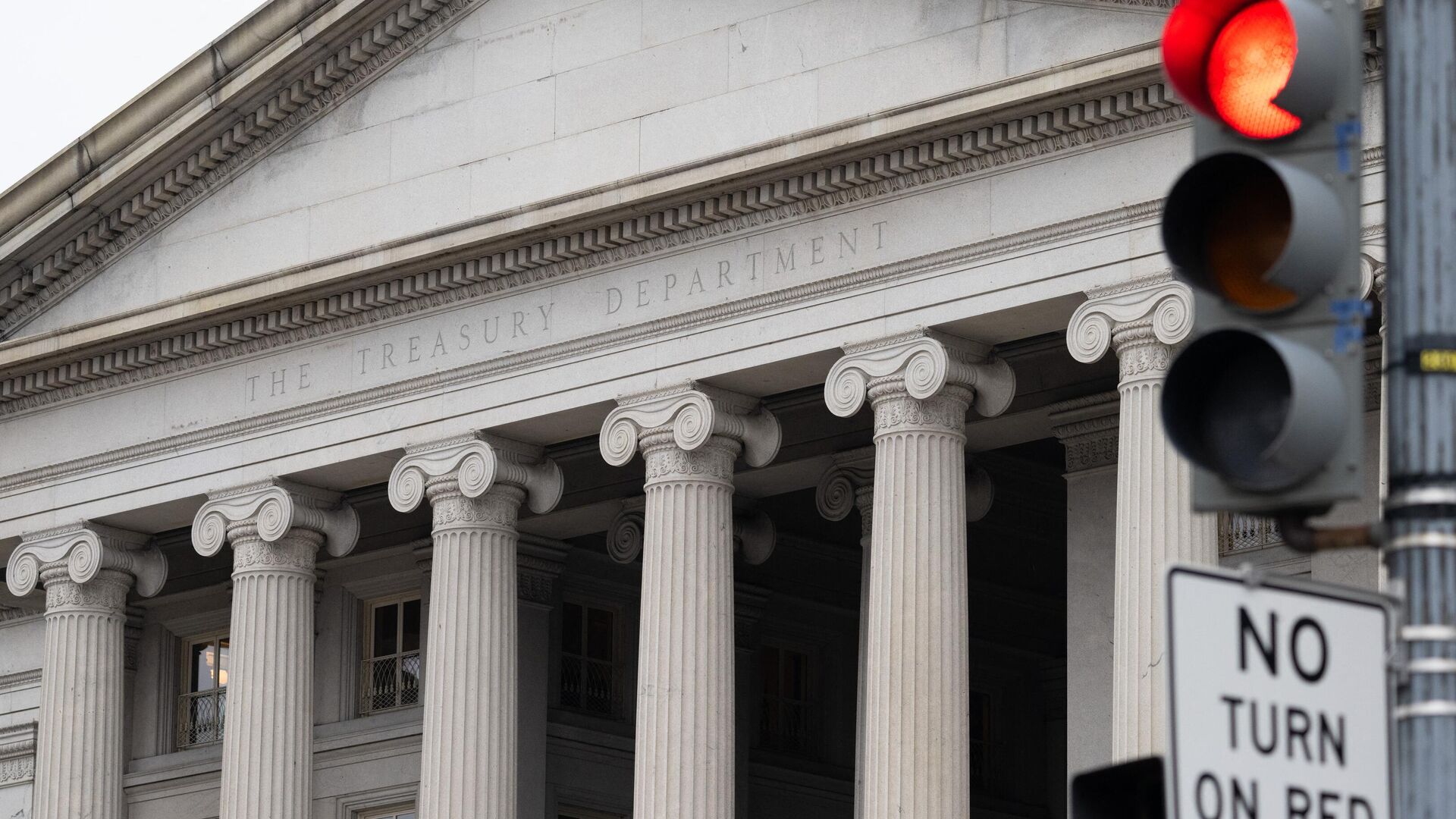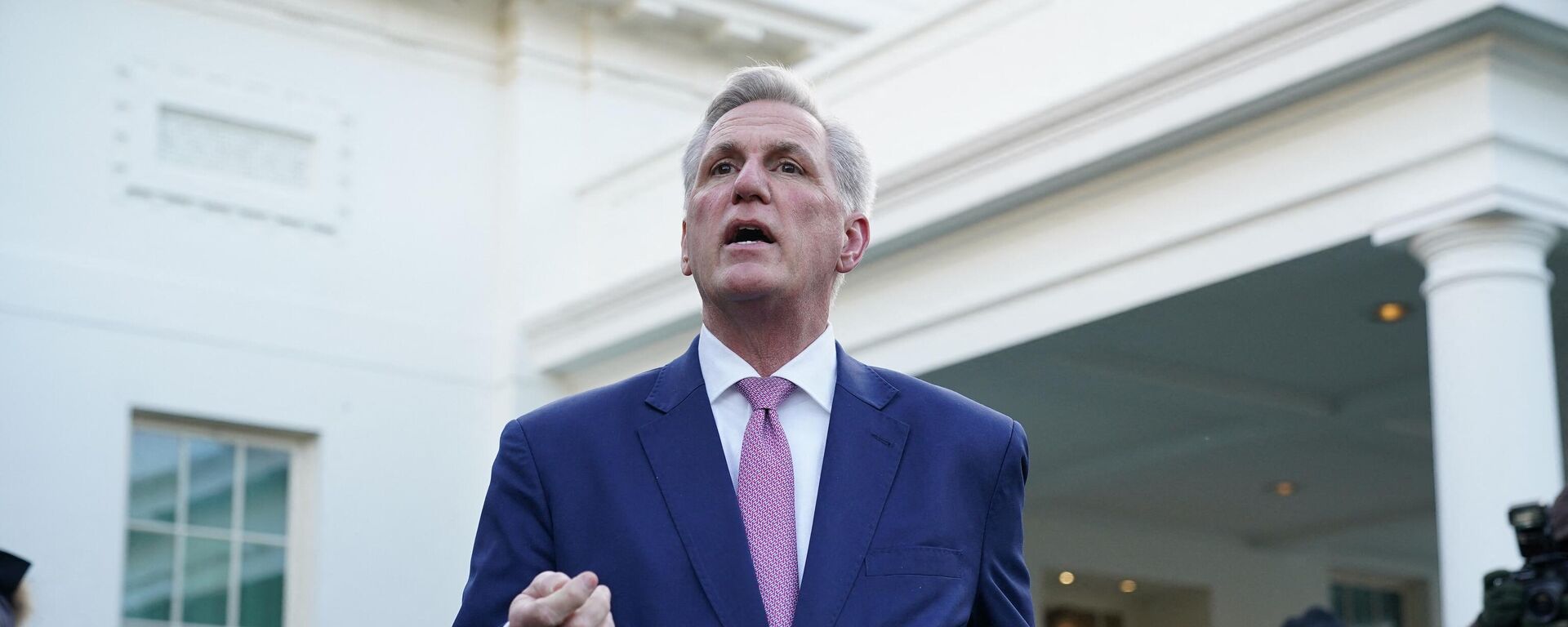What Should Americans Brace For on the Brink of Default?

© AFP 2023 / SAUL LOEB
Subscribe
Treasury Secretary Janet Yellen recently warned that unless the congressional limit on the country’s debt servicing is raised by June 1, the US government will likely begin defaulting on its debt.
With a US default scenario grabbing global headlines, Sputnik has reached out to renowned experts to ask them about possible implications of the potential default and what ordinary Americans should do if it happens.
What is the 2023 US Default All About?
Fabrizio Carmignani, professor of economics and dean at Griffith Business School, explained that
This year, the risk of default for America arises not because US debt is unsustainable in absolute terms, but because of the legislative ceiling that is set on the amount of national debt that can be incurred by the Treasury.
Based on expenditure forecasts, both the Congressional Budget Office and the US Department of Treasury suggest that debt is rapidly approaching that legislative ceiling.
If the ceiling is not raised, then the US Treasury might no longer be able to pay its bills as of June 1, 2023, a warning that was earlier issued by Treasury Secretary Janet Yellen.
Will the US Default on Its Debt?
Despite the fact that the increase in the US debt ceiling is being negotiated between the Biden administration and Congress, these talks seem to have reached a deadlock and this is what is now fueling concerns about a possible default, according to Carmignani.
The current US debt ceiling is due to be reached by the end of this month, which leaves the US government little time to negotiate its extension or suspension.
Even so, a last-minute agreement is expected to be reached at the end of the day.
Even if the US hits the debt ceiling now, the default will be brief, as it is not in the interest of the administration nor in the interest of Congress to have a protracted default. So, one might be looking at a sharp, but short-lived shock, he added.
Will There Be Repercussions?
Carmignani also warned that if the US effectively comes to a default, then there would likely be some significant consequences in America and worldwide:
First of all, millions of Americans who rely on federal payments (e.g. salaries, federal programs, etc...) would be possibly left without income.
In fact, who and what the government would still be able to pay after the default is unclear. There is a 1996 law that could allow the Treasury to continue to pay social security benefits, but payments on obligations such as Medicare, Medicaid, food stamps and housing assistance would most likely have to be stopped.
Military salaries and principal and interest payments on at least some US Treasury securities might also have to be stopped.
He was echoed by Chris Devonshire-Ellis, chairman of Dezan Shira & Associates, who predicted that in the event of a default:
The US will suffer a serious blow to its fiscal credibility.
Government facilities will close with no funds to keep them open.
This, in turn, may lead to strikes and potentially serious social problems - all of which will boost former US President Donald Trump’s appeal despite his own legal troubles.
A default will also most likely raise the cost of US borrowing and make it more difficult and expensive for the US to further borrow money.
Shares are likely to fall dramatically while the US dollar will also depreciate. Gold and other precious commodities can be expected to rise in price.
Planned US investment into infrastructure such as the 'Build Back Better' scheme may cease.
Foreign governments may start to ask for the return of their assets held in the US, such as gold and currency reserves.
In addition to the stop in payments, the default would have broader systemic consequences.
US Treasury bonds would be downgraded, leading to an increase in interest rates and a decrease in their value. This in turn would affect the balance sheet of companies (both financial and non-financial institutions) that hold Treasury securities.
The potential consequence would be some form of liquidity shortage, especially if banks decide to hoard cash.
Ultimately, there is an increased risk of recession, with contraction in GDP [gross domestic product] and increase in unemployment.
It is also reasonable to expect that the decline in equity prices and the contraction/recession in the US would trigger adverse effects worldwide, with global stock markets and economies following the US.
What Should the US and Its Citizens Do?
While there are no easy solutions in such a volatile scenario, British academic and author Rodney Atkinson advises Americans to:
Look to gold, which is a difficult investment but useful.
Stick to the dollar when interest rates have risen.
He stressed that as far as the US is concerned, it must:
Cut state spending and state payrolls.
Negotiate an end to the conflict in Ukraine.
Bring stability to international commodity and energy costs, as well as to free trade in the world.
Default is the failure to make required interest or principal repayments on a debt, whether that debt is related to a loan or a security. Individuals, businesses, and even countries can default on their debt obligations. There are two types of the process, debt service default and a technical default.
The first one occurs when the borrower has not made a scheduled payment of interest or principal. A technical default is a violation (a breach) of one (or more) terms of a loan agreement between a borrower and a lender.
As for the US, it has never reached the point of default where the Treasury was incapable of paying American debt obligations, even though it has been close on several occasions, including the 2011 debt ceiling crisis. In a last-ditch move at the time, Congress passed a law that increased the debt ceiling by $2.4 trillion to tackle the deadlock.
In one of the latest developments, US lawmakers urged President Joe Biden to sit down and negotiate the debt ceiling and stop "playing Russian roulette" with the American economy.
"I am disappointed in the White House, they are missing in action. This should be the biggest issue that they are dealing with every day, they should be having daily meetings with [House Speaker] Kevin McCarthy to figure out how we get this done," Senator Rick Scott told reporters


